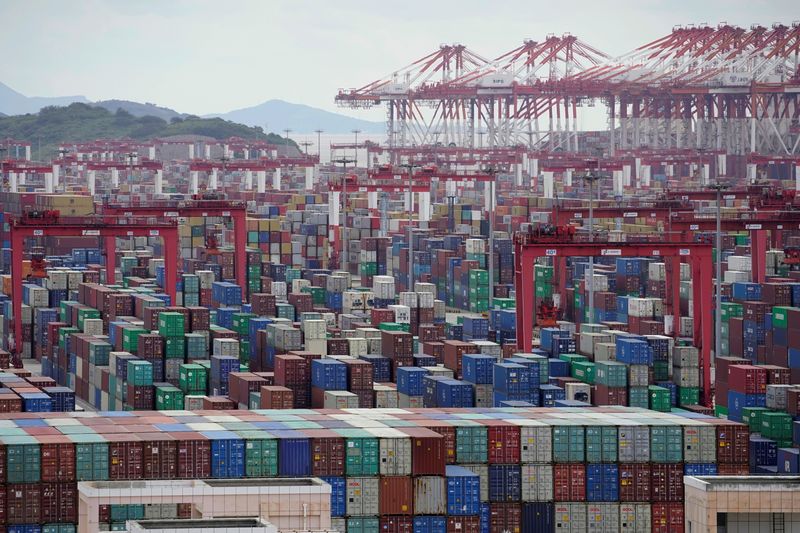GENEVA (Reuters) - Global goods trade is slowing after a sharp rebound following the initial shock of the COVID-19 pandemic as production and supply disruptions and cooling demand for imports dampen growth, the World Trade Organization said on Monday.
The WTO said its goods trade barometer dropped to 99.5 points, close to the baseline of 100, in November following a record reading of 110.4 in August.
The Geneva-based trade body said supply shocks, including port gridlock arising from surging import demand in the first half of the year and disrupted production of goods such as automobiles and semiconductors, had contributed to the decline.
Demand for traded goods was also easing, indicated by falling export orders.
"Cooling import demand could help ease port congestion, but backlogs and delays are unlikely to be eliminated as long as container throughput remains at or near record levels," the WTO said.
The WTO said the reading was broadly in line with its forecast of a 10.8% pick-up of merchandise trade volume this year, slowing to a 4.7% rise in 2022.
The WTO said the outlook for world trade continued to be overshadowed by downside risks, regional disparities and continued weakness of services trade.
The Geneva-based trade body said all its barometer's component indices had declined, with the steepest decline for its automotive products index and only the air freight index firmly above trend.

Electronic components, container shipping and raw materials were at or close to the 100 mark indicating growth in line with medium-term trends.
The WTO goods trade barometer is a composite of data and is designed to anticipate turning points and gauge momentum in global trade growth rather than to provide a specific short-term forecast.